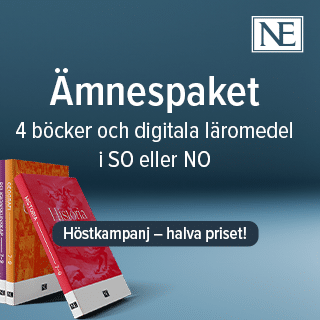Bedömning som gemensam angelägenhet – enkelt i retoriken, svårare i praktiken. Elevers och lärares förståelse och erfarenheter
Lisbeth Gyllander Torkildsen
Docent Gudrun Erickson, Göteborgs universitet Karin Rönnerman, Göteborgs universitet
Professor Astrid Pettersson, Stockholms universitet
Göteborgs universitet
2016-05-20
Bedömning som gemensam angelägenhet – enkelt i retoriken, svårare i praktiken. Elevers och lärares förståelse och erfarenheter
Assessment as a reciprocal concern – simple in rhetoric, difficult in practice. Students’ and teachers’ understan ding and experiences
Institutionen för pedagogik och specialpedagogik
Bedömning som gemensam angelägenhet – enkelt i retoriken, svårare i praktiken. Elevers och lärares förståelse och erfarenheter
Assessment as a reciprocal concern – simple in rhetoric, difficult in practice. Students’ and teachers’ understan ding and experiences
The thesis focuses on students’ understanding of assessment and their agency in assessment practices. It discusses assessment in relation to arrangements that shape students’ and teachers’ mutual assessment practices. The study is based on a development project in a secondary school, involving 25 students and 9 teachers. It uses an action research approach and was carried out between 2010 and 2014. The aims of the study were to generate knowledge (1) on students’ understanding of assessment and assessment practices, (2) on how arrangements shape students’ understanding and agency, and (3) on how arrangements shape students’ and teachers’ opportunities to develop assessment practices. The theoretical and analytical framework consists of validity theories and practice theories. Construct validity refers to empirically observable behavior that can be associated with theoretically explicable attributes. The construct is used to validate the relevance, use and consequences of assessment; here: accessibility and reciprocity of assessment practices (Cronbach & Meehl, 1955; Messick, 1989; Stobart, 2012). The theory of practice architectures (Kemmis, Wilkinson, Edwards-Groves, Hardy, Grootenboer & Bristol, 2014) explains how practices are shaped by cultural-discursive, material-economic, and social- political arrangements. Practices in a site are interrelated and interdependent. The study shows that students understand assessment on three hierarchically qualitative levels: performance, understanding and learning. Their understanding is linked to clarified goals, diagnosis, feedback and pre- conditions in the site. Students’ agency is shaped by the way teachers: clarify goals; arrange teaching, learning and assessment activities; enable the use of feedback to enhance learning; and by the way relationships, roles and responsibilities are negotiated. Communicative spaces may enhance students’ agency in assessment practices. Arrangements – like policy documents, assessment literature, local assessment policies and tools – shape teachers’ practices, thus enabling and constraining students’ and teachers’ development of reciprocal assessment practices. Assessment is a reflection of both students’ and teachers’ current practices. As a reciprocal concern, assessment requires collaboration between students and teachers. Furthermore, the reciprocal concern involves school leaders, officials in local school boards, politicians, policy writers and researchers. Reasonable consensus on assessment ought to be reached – based on students’ perspectives and rights – in order to strengthen students’ agency, learning and knowing. The thesis aims to contribute to knowledge on students’ understanding of assessment and on arrangements that affect students’ and teachers’ agency and opportunities to develop reciprocal assessment practices. It also shows how meta-practices and discourses affect local practices.
Relaterade länkar

Fritidshem
 Åk F–6
Åk F–6 Matematikångest
 Åk 4–Vux
Åk 4–Vux 






